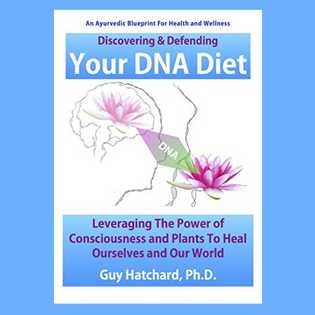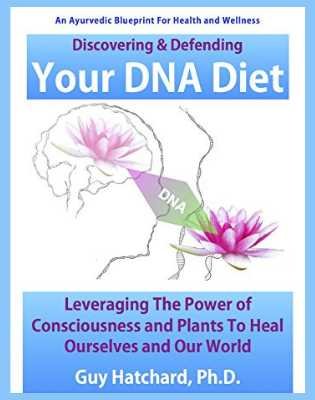I am seldom offered the opportunity to communicate with pro-vaccine scientists. In this case, I have been introduced to a prominent pro-vaccine blogger who is a microbiologist in the USA.
We are working towards a moderated public debate. This is a work in progress. He and I have been exchanging emails. This is my latest:
Dear XXX
I can only work through the plethora of links you are sending, one by one. Thank you for communicating.
Can I summarise where we are so far:
I accept and always have accepted that Alpha and Delta can have serious impacts. Initial investigation concluded that mRNA vaccination reduced the rate of their severity as measured by hospitalisations and deaths. However the mortality rates associated with successive Covid variants have gradually reduced from early figures that could be as high as 2% or more. They are currently well under 1%, possibly as low as 0.1% or even lower. Do you agree? This reduction could be due to a combination of a number of factors: improved treatment protocols, more mild nature of variants, immunity from prior infection, and vaccination efficacy. The proportional assignment of the relative influence of these factors is not exactly known.
We also agree that mRNA vaccination causes a relatively high rate of myopericarditis, especially among young males. The long term prognosis of these cases is unknown. There is a recently published indication that some aspects of these heart conditions persist for 3 – 8 months. The Israeli study of 1.8 million individuals that you referred me to, found an incidence of myocarditis of the order of 1.55 – 12.44 (confidence limits) per 100,000, but the risk due to Covid Delta infection was measured as about twice that. Other studies have found rates which differ from this, in some cases by quite a lot. So there is probably a need for a meta analysis, you may even know of a recent one that has been completed.
There is little or no data on the sub clinical occurrence of myopericarditis. The majority of the 18,000 NZ reports of chest pain, tachycardia, and shortness of breath have been treated as non-serious and not followed up. The rate of these adverse effects in NZ reported to CARM is 1 in 500, although the real rate is certainly far higher because of under reporting. Medsafe itself estimates as low as 5% of cases are reported. Reports of this nature in NZ have been largely dismissed as due to vaccine anxiety, one wonders why such reports did not occur for previous vaccines at this rate or anything even remotely like it. The current proposals in many countries for an ongoing regime of mRNA vaccinations stretching into the future are therefore very concerning. Will the severity or rate of adverse effects increase?
You wonder why I am concerned about NZ figures as opposed to figures from other countries collated by Our World In Data. Here in NZ I can verify MoH methods and inclusion criteria through publications and correspondence. When I looked at Our World In Data figures for NZ some time ago, I found they contained the same inaccuracies of presentation used by our MoH. This level of scrutiny is not available to me for data reported for other countries except via researchers in those countries. I note that you have referred me to Our World In Data graphs for other countries. Some of which appear to show, as in Hong Kong’s case, that relatively low vaccination rates are associated with high caseloads, and some show that high vaccination rates appear to be associated with lowered death rates. As you know the circumstances in each country have to be investigated thoroughly. Low death rates can simply be due to the effect of milder variants or different methods of reporting cause of death.
I responded to you that correlations between deaths/hospitalisation by country with vaccination rates do not yield positive results. I also found this. In my opinion such negative statistical findings indicate that other factors outside the scope of vaccination rates are responsible for the wide country differences. These factors could include climate, living conditions, diet and nutrition, lifestyle, genetic makeup, air quality, environmental and chemical pollution, and type of vaccine used. The relative importance of these is yet to be properly investigated or understood.
NZ is unique because up until late 2021 we had almost no cases of Covid. Thereby our vaccine rollout of Pfizer jabs reached 90+% of eligible people before there was any degree of Covid infection. The zero tolerance of Covid was achieved through very strict border controls, cessation of all tourism, lockdowns, and very detailed track and trace and isolation requirements. Thus we arrived at a point where we had almost no natural immunity in the general population, but a very high level of vaccination, amongst the highest in the world. The all-cause mortality data during the vaccine rollout is therefore very interesting from a scientific point of view, as is the evolution of infections, hospitalisations, and deaths subsequent to the introduction of Covid. This is because both periods clearly demonstrate the impact of vaccination, isolated from any effect of prior Covid infection.
Regarding the import of Grant Dixon’s recent video showing that vaccinated individuals in NZ are becoming more vulnerable to Covid infection than the unvaccinated, I reviewed your link from Our World In Data and this points out that it is necessary to look at rates per 100,000 of vaccinated and unvaccinated populations. Grant has done that carefully. You also point out that children might make up a higher percentage of the unvaccinated population and that they may be less vulnerable to Covid which would tend to skew the data. I accept that this could have an effect on the data.
However if you review Grant’s video summary, what stands out is a progressive trend of higher vulnerability of the vaccinated as the weeks go by. This trend is certainly significant, even if the absolute percentages have a range of confidence limits. Grant suggests that the BA2 variant which has become dominant here might be better able to evade the vaccine. Of course it could also be the case that BA2 is adapted to prefer to infect vaccinated individuals. It could also be the case that the booster effect wears off rapidly, other assessments have placed cessation of the booster effect as low as 10 weeks. It could also be the case, as others have suggested, that as the booster effect wears off, the individual is left more vulnerable to infection. All of these are possible in varying but as yet unknown proportions. Vaccine suitability should be judged against five criteria. Does it reduce: infection, transmission, safety, hospitalisation, and mortality? The NZ data currently supports none of these.
I continue to be concerned about multiple cases of adverse effects proximate to vaccination and subsequent anecdotal reports in NZ of high incidence of cardiac and thrombotic events. I note the results of the Israeli study which suggests that Covid infection might cause higher rates of these conditions. But I also note the authors call for more study. It is therefore disappointing that the NZ MoH has not released 2021 and current data for specific conditions such as stillbirth, cardiac hospitalisations, etc. despite reports that these have increased. Refusal to publish figures does not help clarity around these issues or promote confidence in the government.
I presume you also agree that Covid continues to be a disease that overwhelmingly affects people with comorbidities. These include diabetes, smoking, excess alcohol consumption, high BMI, and many others. Age is also a primary determinant of severe outcomes. From the outset, I have been suggesting that improved health and lifestyle habits would be in the longer term a more effective approach to the pandemic than vaccination. Moreover they will promote wider health goals beneficial to a whole range of health conditions. I suggested our policy advisors should promote preventive educational strategies of improved diet, exercise, reduced pollution, reductions in processed food consumption, etc. They dismissed this because they felt that the difference this could make would be marginal. I disagree, modest studies have shown that lighter diets, more exercise and rest, and some ayurvedic herbs can have large effect sizes on Covid outcomes. It is disappointing that governments continue to ignore this option, and rely instead on mandated mRNA vaccination as a largely standalone strategy.
The point about which we are in complete disagreement is the advisability of vaccine mandates. You say:
“Nothing is 100% safe and everything has adverse side effects. If a child needed life-saving antibiotics but the parents did not believe in such things and chose to not treat their child, are they not responsible? Antibiotics have potential for adverse events, like any medicine, so by your logic it would be immoral for the parents to be forced to bring their child to a hospital for treatment even if we know that the treatment would save the child’s life. Famous cases such as these have happened and the parents have been convicted. Actively making a choice that poses more risk to both yourself and your community can’t be argued as moral.”
This is a powerful sounding but largely emotive statement of your case. You are talking about parents refusing treatment for their very sick children. We are not talking about medicines for sick children here, but a novel vaccine the extent of whose long term effects remains unknown. Historically, the forced experimentation on people who are not actually sick has since WW2 been a matter of choice. I note that mRNA vaccination does almost nothing to reduce transmission. In that sense it does not resemble anything that was previously called a vaccine. As a result, mandate arguments fall over at the first hurdle. Moreover mRNA is a novel technology which should imply caution. You also reference that Omicron has produced a relatively high rate of 0-4 years infant hospitalisation in the USA. That has not been reported here in NZ. Moreover absolute risks from Covid infection of the young are incredibly low, and no level of efficacy of Pfizer Covid vaccination for infants has been established.
I note your argument that risks from medical procedures are inevitable and therefore they should be enforced on everyone. People who oppose vaccination should not be spoken of as little children to be controlled by remote authorities. Moreover your logic would imply that people who drive cars, eat too much, drink alcohol, smoke, and go surfing should be forcibly stopped.
There are alternative approaches to maintaining health. People should be allowed to pursue these. The vast majority of our health outcomes are determined by our diet, behaviour, and our psychology, not by medicines. The insistence on risky medical protocols has made medical misadventure the third leading cause of death in the USA. Whereas improved diet, behaviour, and happiness are known to be keys to greatly improve preventive health outcomes. When it comes to health, choice of treatment and prevention is the right of everyone, no ifs or buts. Draconian vaccine coercion here in NZ has splintered the cohesion of our society, damaged our economy, and led to a loss of trust.
Thank you again for corresponding. Yes we should have another face to face soon.
Best wishes
Guy
There is no doubt my correspondent is going to reply to me rejecting my points, citing a number of links to studies, as he has on previous occasions. There are many thousands of Covid papers and articles published so far. Some of these reach conflicting conclusions. The important point to note is that their conclusions, on both sides of the argument, are not always justified by the data. In some cases, potentially key outcomes have not been considered.
Science is a process of working through these through peer review, theoretical considerations, correspondence, re-analysis, and so on. In some cases, there are significant findings which should not be overlooked. In others, deliberate manipulation of data can be employed to hide unwanted outcomes. See for example Dr. Robert Malone’s critique of a recent paper “Effectiveness of the BNT162b2 vaccine among children” In all cases a great deal of caution should be exercised with novel medicines, such caution has not been exercised in the case of mRNA technology. Commercial interests have certainly interfered with this process.
All in all I am grateful to my correspondent for agreeing to a discussion. It is lamentable as we saw in my blog yesterday that scientists, media, and government officials in NZ are refusing to engage in open rational debate.
Guy Hatchard PhD was formerly a senior manager at Genetic ID a global food safety testing and certification company (now known as FoodChain ID)






